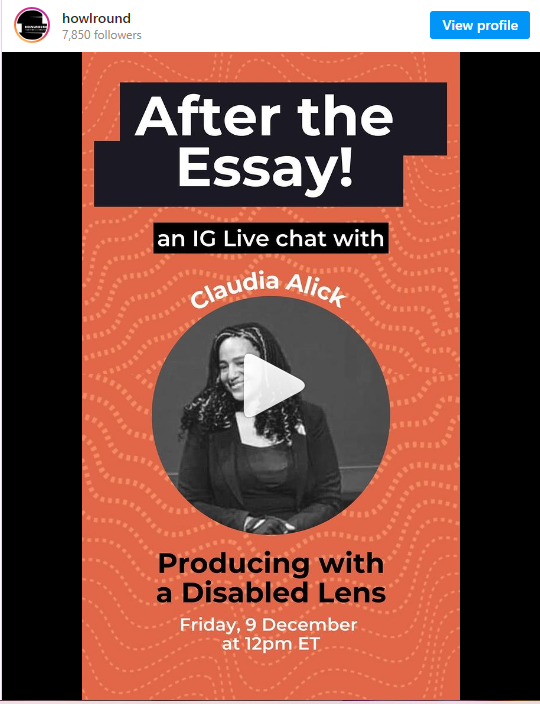
An IG Live Howlround Chat
The brilliant Claudia Alick talks about disability justice, the “half-bridge” of accessibility that many theatres built early in the pandemic and then abandoned, and the

The brilliant Claudia Alick talks about disability justice, the “half-bridge” of accessibility that many theatres built early in the pandemic and then abandoned, and the

Interactive fiction is a type of video game or software that combines elements of storytelling with gameplay. Players interact with the story by making choices that affect the outcome, and the story is presented in the form of text or dialogue. There are many different types of interactive fiction, including text adventures, gamebooks, and visual novels.
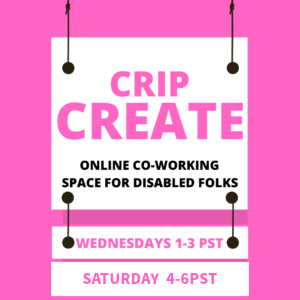
CripCreate, A weekly online co-working space by and for all Deaf and Disabled people.
This is a Disability Justice-centered co-working space for all Disabled (sick, Disabled, Mad/mentally ill, Deaf, Hard of Hearing, low vision/blind, neurodiverse, or otherwise chronically ill) people.

followers forever. We are building a prototype that would allow audience to subscribe for updates if your account changes unexpectedly and inform your followers of your new location. Sign-up now to solve this issue for yourself and your audience!
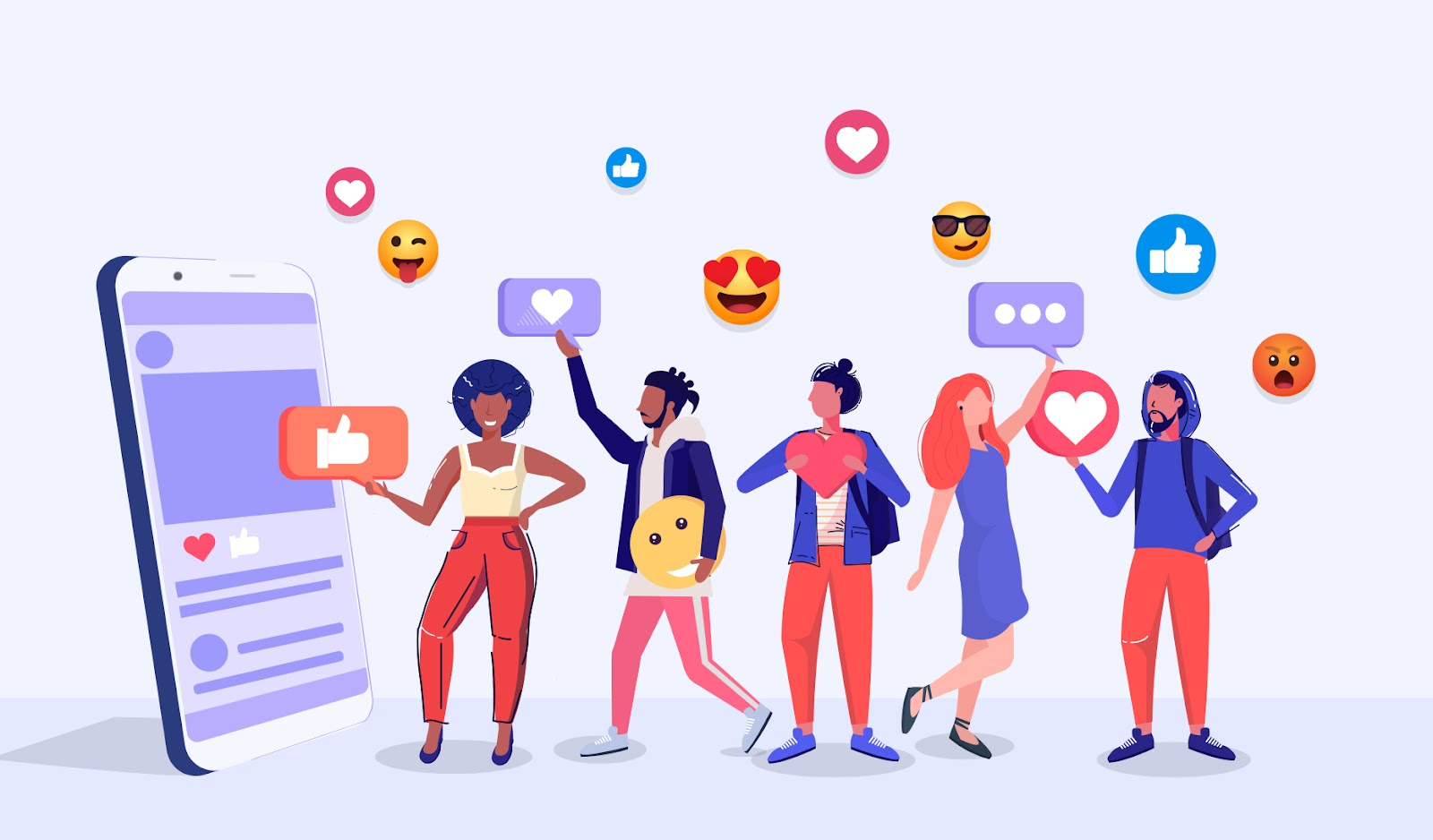
Calling Up Justice designs and facilitates digital platform for communication and empowerment. The Mosaic Network was an alternative to a facebook group for around a hundred theater practitioners and funders. EarlyWords is a tool for artists to journal daily. Followers Forever is addressing a problem of many audience member and connectors being seperated. In 2020 and 2021 we concentrated our energy on video hosting and sharing platforms. In 2022-2023 we are focused on creating tools and digital spaces to empower performances and behaviors in users.
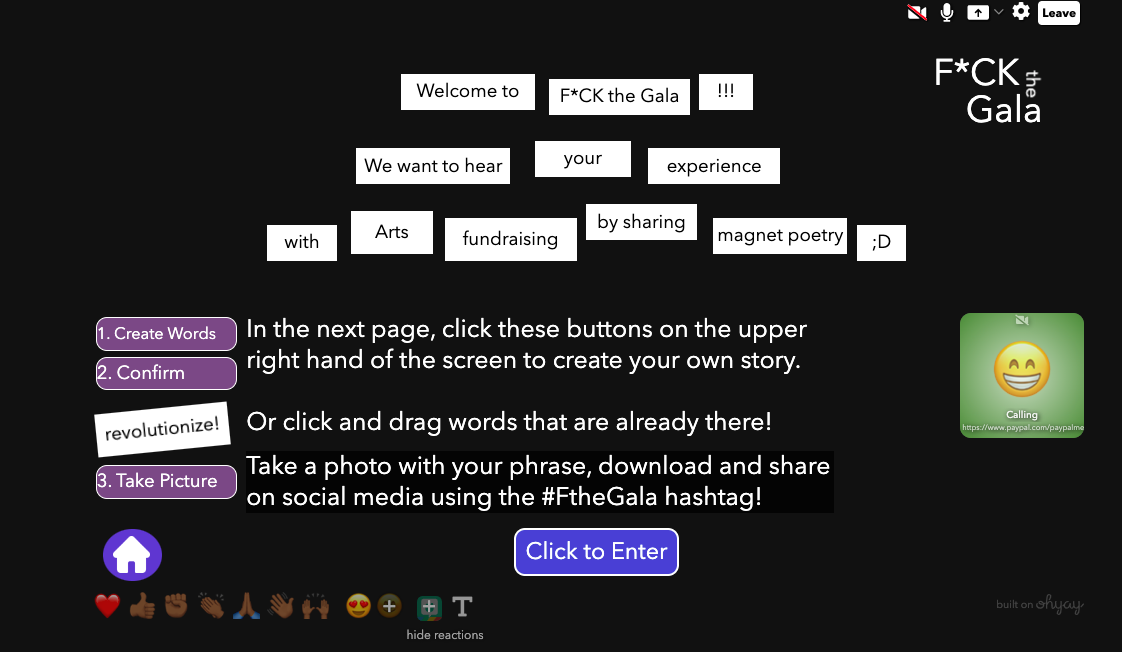
F* THE GALA has been our year-long digital performance and social experiment around arts fundraising. Folks are experiencing liberating exploration of decolonizing wealth, critiquing toxic philanthropy, and analyzing our performance in the arts fundraising ecology. We received anonymous contributions of ideas from Fundraisers, Donors, and also artists. We have had special guests witness and contribute to artistic and thought provoking offerings throughout the year that resulting in a culminating event and report to the wider national arts community.

SWANA stands for Southwest Asian and North African. This term is used to describe the region commonly referred to as the Middle East. SWANA is a “way to distinguish the region in geographical terms, rather than “political terms” as defined by the Western world”
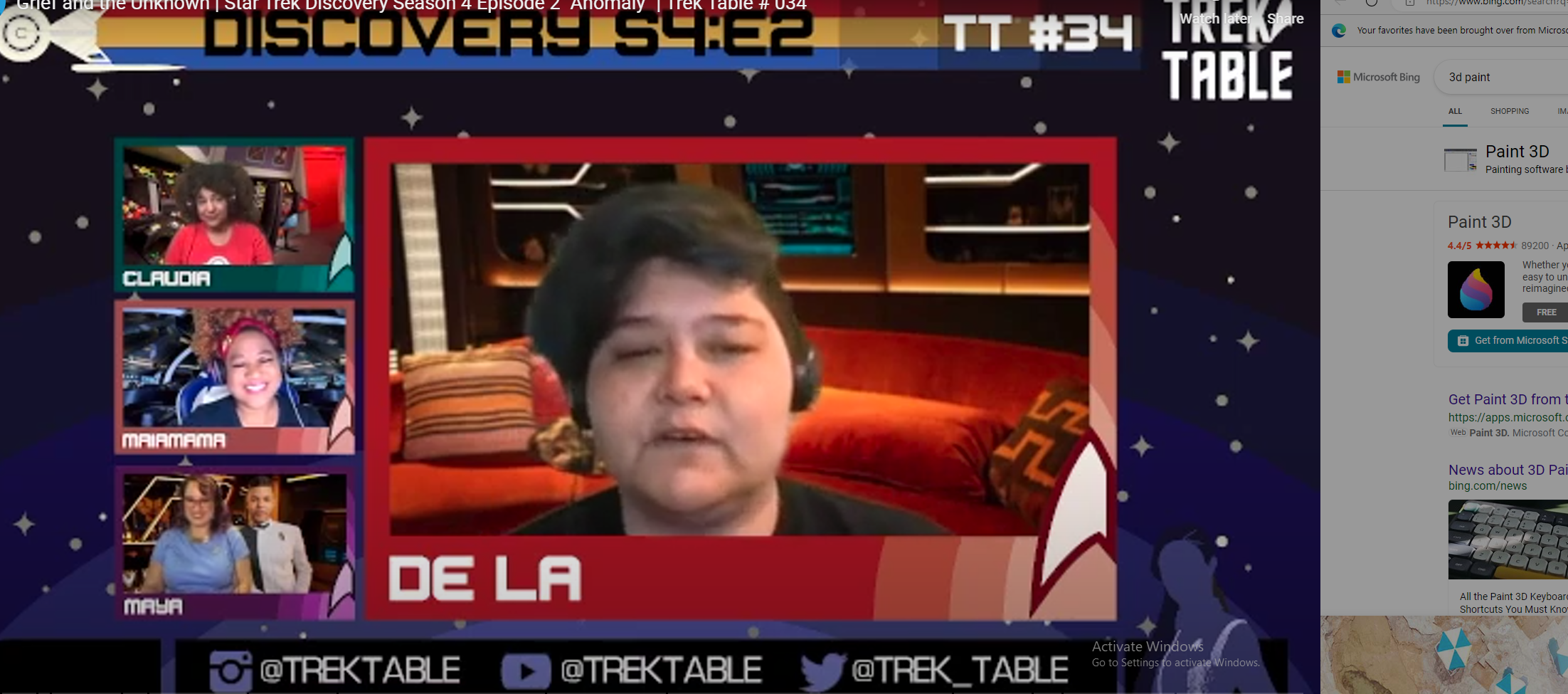
Calling Up Justice supports Dela Project Trek Table . Trek Table is a weekly livestream ritual holding Trek Space for Black, Indigenous, Brown, Women of Color (Queer or otherwise) and their Allies. We gather with Trek heads, newbies, generational Star Trek families, and the sci-fi curious to explore, celebrate, and dive deep into Star Trek Discovery. Maiamama and Claudia Alick join as on air talent, segment producers, and graphic designers.
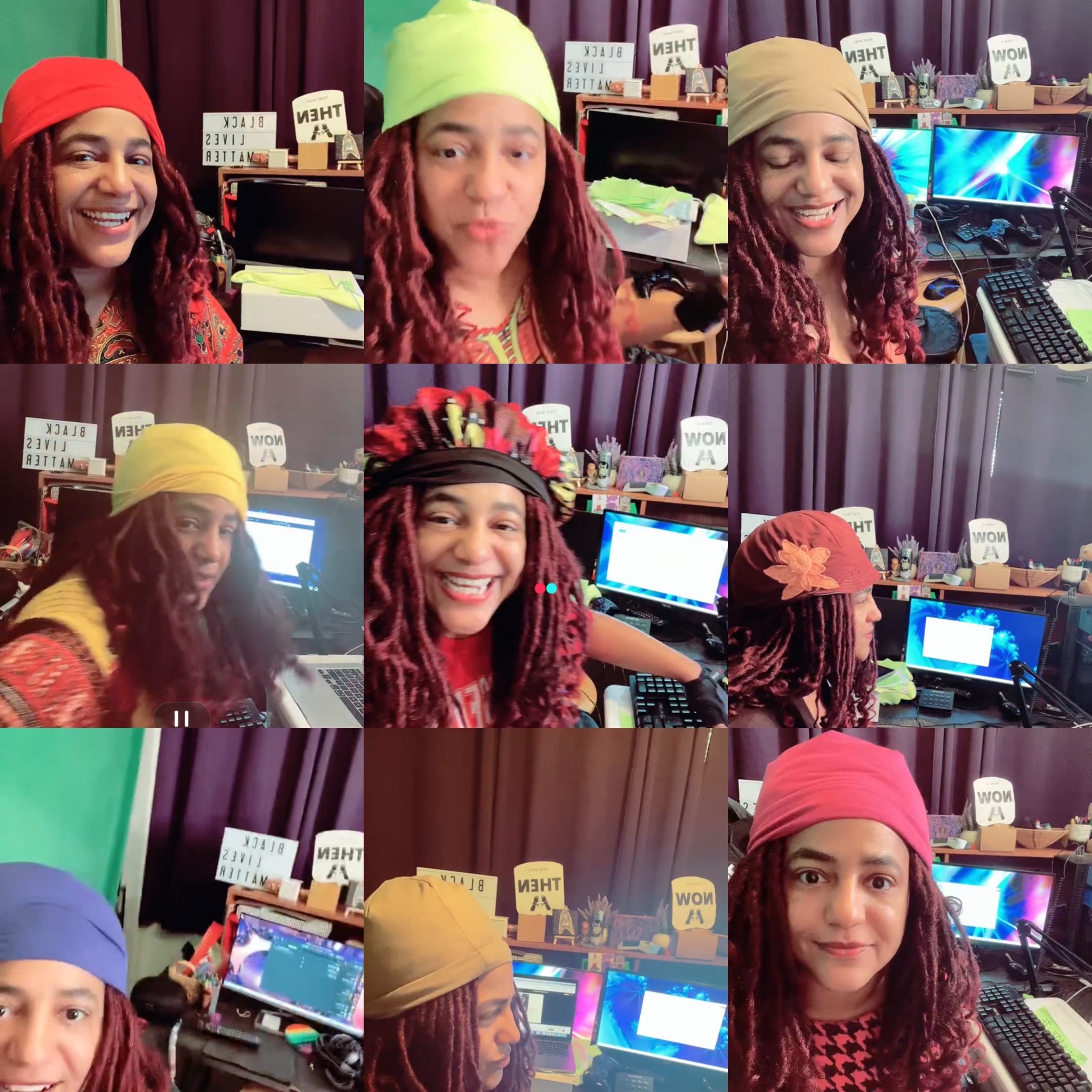
We have been holding live writing sessions on tiktok using the EarlyWords platform. We love how it helps us track our word count and gives us encouraging prompts while we write. We were invited to participate in National Novel Writing Month and used this as our excuse to launch the live writes. We held 30 hours of writing over the month of November.

The Critical Design Lab developed the following protocols for crip podcasting in the design of the Contra* podcast. This podcast focuses on disability, design justice, and the lifeworld.
Copyright © 2023 Calling Up! • Site Design by MULTO.com
Calling Up Justice is fiscally sponsored by Intersection for the Arts, a 501(c)(3) nonprofit organization, which allows us to offer you tax deductions for your contributions. Please make checks payable to Intersection for the Arts, and write “Calling Up Justice” in the memo line. This ensures that you’ll receive an acknowledgement letter for tax purposes, and your donation will be available for our project.